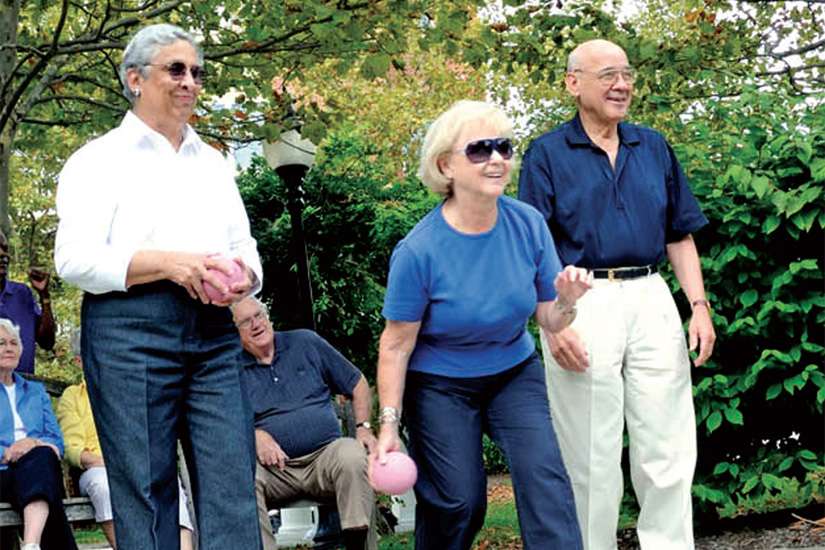Dr. Nicole Anderson is a senior scientist at the Rotman Research Institute at Baycrest Health Sciences in Toronto who studies what helps prevent cognitive decline and dementia among seniors. Anderson said the most important advice she can give is to “stay engaged with people and activities. Resist becoming isolated.”
Anderson said one of the best things older people can do is volunteering. A six-year study she led examined how volunteering impacts the physical, cognitive and psychosocial health of seniors. It showed people who volunteer have fewer symptoms of depression, better life satisfaction and are less lonely.
A healthy diet also has its advantages. Anderson recommends eating a Mediterranean-style diet low in saturated fats, which involves eating fish and white meat, plenty of fruits and vegetables, and whole grains.
It is also important to complete tasks that involve planning or organizing, like a family dinner, for example, and spatial/visual activities like exploring one’s town, Anderson said. She encourages people to partake in a variety of tasks because “all of these activities work different parts of the brain in different ways.”
Crossword puzzles are beneficial, Anderson said. “It’s a good thing to do, especially if you enjoy it,” but cautioned that those types of puzzles work a certain part of the brain — one that is in charge of verbal activity and recalling vocabulary.
Anderson says our culture has taught us to think of the brain separate from our body, but “anything you do to improve your lifestyle will have an impact on improving cognitive health and brain functioning.” If something is bad for you, it’s bad for your brain too, she said, noting that the latest research shows common health conditions like hypertension, high cholesterol and type two diabetes are having a negative impact on our brain health.
Dr. Samir Sinha is the Director of Geriatrics at Toronto’s Mount Sinai Hospital. He gives similar advice, and more, in his 10 quick tips to living a longer and healthier life: have breakfast, eat fruits and vegetables daily, keep your weight under control, exercise regularly, don’t smoke, limit your alcohol consumption, establish your own sense of purpose, participate in meaningful social activities regularly, take time to relieve stress and get a good night’s sleep.


